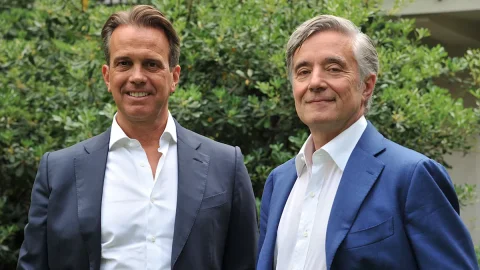The Business Roundable (BRT) is an association based in Washington DC The BRT has a certain specific weight in the political and economic life of the United States. In fact, it associates a large number of chief executive officers (CEOs) of large American multinational companies of the new and old economies. Its purpose is to promote policies that favor business. Its members include Jeff Bezos, Tim Cook, Mary Barra, Jamie Dimon, who is the president, and Alex Gorsky (CEO of Johnson & Johnson) who is the secretary.
Recently the BRT has put its hand to the founding document of the association, "The Statement on the Purpose of a Corporation", which commits its members to follow the policies expressed in this declaration. It was since September 1997 that the BRT did not feel the need to amend the document, Statement on Corporate Governance, which it had issued on that date. Now this need seems to have become urgent.
Last year Jamie Dimon, CEO of JPMorgan Chase and president of the Business Roundtable, said in an interview: “We looked at what was written in 1997 and we no longer agree with it. It doesn't quite describe what we think our job should be." In the spring of 2019, a committee was established to review the 1997 Statement.
The committee then issued an important update on 19 August 2019. One could even speak of an overcoming of the key phrase of the 1997 Statement. This: "The fundamental duty of management and directors is towards the shareholders of the company."
THE NEED FOR NEW PRACTICES
Undoubtedly, Corporate America is going through one of the toughest and most tense periods in its history. Against it, global discontent is mounting with the inequality capitalism is producing, with low wages, directors' fees and corporate environmental practices. A CEO's salary, for example, is worth 250 times the average employee's pay. The pressure to elaborate and implement a different ethic in doing business arises from many sides and with force.
Faced with the incapacity of the ruling classes to manage change, and given the political and ideal crisis of post-Berlin wall liberalism, some are really looking to the leaders of large industrial and technological groups for a possible supplementary action or strong support for the political class.
This is probably the reason why the Business Roundable has decided to radically shift the axis of the company's goals. Now the emphasis is no longer on creating value for shareholders (sharehlders) – which naturally remains – but on creating it for the stakeholders, ie all those subjects involved in the company's business. Employees, consumers, suppliers and local communities.
THE PURPOSES OF THE COMPANY IN THE NEW ZEITGESIT
The crucial points to be pursued to achieve this goal are the following according to the Statement of the BRT (which we quote verbatim):
- Offer value to customers. Continuing the tradition of American companies in meeting and exceeding customer expectations.
- Invest in employees. The first step is through fair compensation accompanied by important benefits. They must also include support for training and retraining aimed at developing new skills in a rapidly changing world. We promote diversity and inclusion, dignity and respect.
- Treat all suppliers fairly and ethically. We must strive to be good partners to other companies, large and small, who help us carry out the mission of the company.
- Support the communities where we work. We respect the people in our communities and protect the environment with sustainable practices in all activities.
- Generate long-term value for shareholders, who provide the capital companies need to invest, grow and innovate. We are committed to transparency and effective engagement with shareholders.
THE SIGNATORS
The declaration was signed by more than 200 CEOs and presidents of corporate America.
THU you can find the original document and the complete list of signatories.
We mention a few: Julie Sweet of Accenture, Jeff Bezos of Amazon, Doug Parker of American Airlines, Stephen J. Squeri of American Express, Tim Cook of Apple, Randall Stephenson of AT&T, Brian Moynihan of Bank of America, Larry Fink of BlackRock, Dennis A. Muilenburg of Boeing Company, Kewsong Lee of Carlyle Group, D. James Umpleby III of Caterpillar, Chuck Robbins of Cisco Systems, Michael L. Corbat of Citigroup, James Quincey of Coca Cola, Brian L. Roberts of Comcast, Michael S Dell of Dell Technologies, Darren W. Woods of Exxon Mobil, James P. Hackett of Ford Motor Company, Lachlan K. Murdoch of Fox, Mary Barra of General Motors, David M. Solomon of Goldman Sachs, Ginni Rometty of IBM, Jamie Dimon, JPMorgan Chase, Ajay Banga of Mastercard, James P. Gorman of Morgan Stanley, Safra Catz of Oracle, Ramon Laguarta of Pepsi Cola, Albert Bourla of Pfizer, Keith Block of Salesforce, Bill McDermott of SAP, James P. Keane of Siemens , Oscar Munoz of United Airlines, Mortimer J. Buckley of Vanguard, Alfred F. Kelly Jr. of Visa, Michael Roman of 3M.
TOWARDS A NEW COLLECTIVE CAPITALISM?
The initiative had a huge echo in the media. The liberal magazine and think-tank, “The Economist”, dedicated its cover to the topic with the headline: What are companies for. Big Business, shareholders and society. In its editorial, the "Economist" seems very skeptical of the opportunity to push towards a collective capitalism. This is how he calls the framework that configures the Statement of the BRT.
“However well-intentioned, this new form of collective capitalism will end up doing more harm than good,” the newspaper writes. In the sense that it risks raising a class of administrators who, no longer answerable directly to anyone, lack legitimacy. The risk is that of increasing the discretionary power of these out-of-control subjects on what the stakeholders expect from the company. There is also the risk of opening up the business to undue political interference.
In addition to the deresponsibility of administrators, collective capitalism presents a second pitfall. That of being prone to stagnation. In fact, collective capitalism does not spur dynamism and change. Take for example an era in which capitalism was informed by those principles, that of the 60s.
THE LOSS OF DYNAMISM
Companies like At&T and General Motors robbed consumers and continued to produce outdated and obsolete models under the guise of pursuing social goals such as a job for life or scientific research or supporting the social fabric of the cities where they operated.
The Economist believes that corporate goals should continue to be defined by shareholders, not directors or politicians. The shareholders will decide what action to take in favor of the stakeholders. The right way to balance the interest of shareholders and stakeholders is to work to increase value in the long term and to adapt to changes in the market and consumption patterns.
This choice could lead to another decisive step in reforming quarterly capitalism. That is, the expansion of ownership and its sharing also through tax policies that favor the entry of new subjects into the corporate structures. Unfortunately, the current concentration does not favor this process which can only be guaranteed by competition.
“The West needs innovation, distributed ownership and companies that adapt quickly to the needs of society. This is the truly enlightened kind of capitalism,” concludes the London magazine.
A vision that coincides on a central point, that of the primacy of the shareholders and not of the directors in decisions of a social and ethical nature, with the exponents of the Chicago School. The latter continue to move in the footsteps of Milton Friedman who was the maximum theoretician of profit as the supreme aim of business in a free market.
THE PRESSURE TO IMPLEMENT THE PRINCIPLES OF THE STATEMENT
Oxford University's Saïd Business School and the Berkeley law school have invited the signatories of the Statement to abandon generic declarations and draw up precise points and timescales within which they intend to implement the principles they have signed up to. This would end the misconception that directors' only fiduciary duty is to shareholders.
Many of the signatories of the document have assured that the association will soon elaborate more detailed proposals on how to achieve the intentions declared in the Statement. "This is just the first step," said Chuck Robbins, CEO of Cisco. And it really can be.
Nancy Koehn, a history professor at Harvard Business School, told the New York Times: “They are responding to the new Zeitgeist. They understand that business as usual is no longer acceptable. However, it is an unanswered question whether these companies really want to change the way they operate".
And this seems to be the central point as Anand Giridharadas, author of Winners Take All: The Elite Charade of Changing the World. “Magnanimity and voluntarism will not solve these problems. If the Business Roundtable is serious, tomorrow it should start throwing its weight in favor of legislative proposals that can take the bull by the horns beyond this couch talk.”
THE POLITICAL SHORE
There have also been important reactions in the political arena. Democratic Senator and presidential candidate Elizabeth Warren said the statement would be "worthless" if it didn't result in major changes in the behavior of big business. Among these virtuous behaviors, you mention less repurchase of shares by shareholders, higher salaries for employees and directors' compensation that is commensurate with employees' salaries.
Warren declares that she wants to defend capitalism from its own self-destructive excesses, thus differentiating herself from the "socialist" current of the Democratic Party. You have some pretty radical ideas about it. Ideas that undoubtedly spread waves of anxiety in corporate America. According to Warren, large groups should act on the basis of a public concession obtained from the community in which they operate. When the community judges that the social purpose of the company has failed, this license could be revoked.
Both Warren and the socialist current find much support, albeit a minority, among the younger generations.
The judgment of Bernie Sanders, the most prominent exponent of the socialist current of the Democratic Party, is much more dismissive. The Vermont senator commented on the Business Roundtable's statement in these words: “I don't believe for a moment what they said. If they had been sincere they should have been talking about raising the minimum wage to a survival threshold and the need for the rich and powerful to pay their fair share of taxes”.
Also interesting is theopinion by Andrew Ross Sorkin in the New York Times. Andrew Ross Sorkin is columnist and financial correspondent for the New York newspaper and bestselling author Too big to fail. The breakdown (2009)





